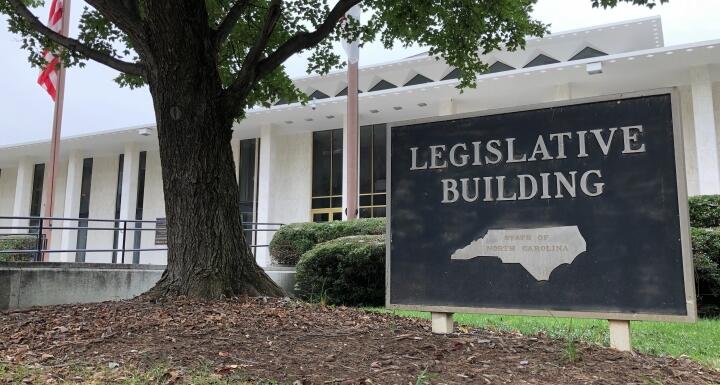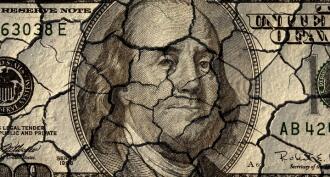As we find ourselves facing a massive global health crisis and sudden economic downturn, many North Carolinians are looking for relief from their government.
Congress has acted. What about the North Carolina General Assembly? How does our State Legislature plan to assist North Carolinians through this crisis?
Although the North Carolina General Assembly was not scheduled to reconvene until April 28, 2020, last month the Speaker of the North Carolina House of Representatives created the House Select Committee on COVID-19 and authorized it to begin working immediately. The new Select Committee is comprised of four working groups:
- Continuity of State Operations
- Health Care
- Education
- Economic Support
Each group has bipartisan leadership and has been meeting remotely on a weekly basis since March 25 to develop policy proposals and consider financial needs related to the COVID-19 crisis. These meetings have been productive and efficient, already generating several pieces of draft legislation that will provide relief to North Carolina citizens during the pandemic.
What are the North Carolina Senate's plans? A spokesperson for Senate President Pro Tempore Phil Berger shared that his office has solicited input from every member of the Senate and has begun assembling its COVID-19 relief legislation behind the scenes, with the goal of voting on those proposals in the near future.
Although House and Senate leadership have not made a formal announcement about the timing of a coronavirus relief session, we expect lawmakers to dedicate their April 28 start date to address fiscal and policy needs related to the pandemic. In a normal even-numbered year, this would be the "Short Session" for regular legislative and budget work, but nothing is normal this year. We expect swift action following April 28, with likely votes on coronavirus relief legislation on April 30, followed by a quick adjournment or recess in early May to allow lawmakers to return to their districts safely.
Lawmakers indicate that the standard work of the Short Session will then most likely be delayed until late summer in order to allow time for the virus to clear and state revenue collections figures to be finalized.
Passing Legislation While Social Distancing
State legislators are a warm and gregarious group, often shaking hands, slapping backs, and meeting in tight clusters. But probably not this year. In light of social distancing guidelines from Governor Roy Cooper's office that will still be in effect when lawmakers reconvene on April 28, the General Assembly will need to get creative in order to conduct business and approve relief legislation safely. Lawmakers are considering adjusting the North Carolina House and Senate rules to extend the time allowed for voting so that small groups of legislators can enter the chambers to vote in shifts. Leadership has also indicated the legislators and staff may have their temperature taken before entering the Legislative Building.
They have also discussed utilizing the third-floor galleries over both chambers to spread out lawmakers during debate or votes. On April 16, the Speaker of the House announced that in the best interest of safety for both onlookers and legislators, physical access to the April 28 session will be restricted to the public. However, the General Assembly has made great strides in streaming its meetings via video and audio in recent weeks. Streaming audio is available here, and the General Assembly has also established YouTube channels for streaming certain meetings.
State Fiscal Health and Possible Financial Relief
Charles Perusse, Director of the North Carolina Office of State Budget and Management ("OSBM"), has been sharing state financial updates with the General Assembly. He advised legislators that while there are still many unknowns, his office projects the virus, and its impacts on business activity will have a "substantial impact" on state receipts. The General Assembly's Chief Economist, Barry Boardman, recently wrote a memo to legislators projecting a $1.5 - $2.5 billion loss in state receipts as a result of the pandemic.
Because of the state's plans to delay the income tax filing deadline to July 15 to correspond with the delayed federal deadline, the full extent of these impacts will likely be unclear until late summer. However, the General Assembly's Fiscal Research Division and OSBM plan to propose a joint financial projection memo for the state in mid-May using the revenue information they have available at that time.
Fortunately, North Carolina entered the present crisis with robust financial reserves. Due to the General Assembly's inability to enact a Fiscal Year 2019-2020 budget last summer after months of partisan gridlock, the state has $2.25 billion in unspent fund balance that otherwise would not have been available. North Carolina also has an impressive rainy day fund, built by an aggressive savings strategy by legislators over the last decade. As a result of this prudent savings approach and the unused budget funds, the General Assembly should be well-positioned to provide financial relief to citizens and businesses when it convenes later this month.
Relief for Taxpayers
One component of financial relief we expect from the General Assembly is tax relief. The House Select Committee on COVID-19 Economic Support Working Group gave approval on April 14 to draft legislation that would extend the state franchise, corporate income, and individual income tax filing deadlines from April 15 to July 15. That bill would also waive all interest accrual on 2019 taxes owed until July 15.
That draft bill also includes several changes to unemployment benefits related to the pandemic, including provisions easing eligibility for applicants and a tax credit for employers for contributions to the Unemployment Insurance Fund. House lawmakers plan to vote on this legislation and send it to the Senate when the General Assembly reconvenes on April 28.
Local Governments Need Tax Relief Too
Local governments have asked the General Assembly to provide financial relief to help fill gaps created by decreased sales tax revenue and declining collections on utility bills. As many North Carolinians are waiting out the pandemic in their homes rather than shopping in their communities, sales tax revenues are falling far short of projections. In our state, sales tax revenue makes up 25% of a municipality's budget on average, which means that the pandemic's impact on purchasing behavior could create significant cash flow problems for cities and towns if not addressed.
While the CARES Act provided some financial relief for local governments, almost all North Carolina cities are ineligible for that bill's earmarked stimulus funds because of their population size. House leadership seems understanding of these local government funding hurdles and has repeatedly expressed interest in providing assistance to cities and towns to help them through these uncertain times.
Small Business Loan Programs
Legislators are also sympathetic to the small business cash flow issues created by the pandemic and are already working on financial relief measures that may ease these burdens. On April 14, members of the House Select Committee on COVID-19 released draft legislation that would provide $25 million to a state bridge loan program that would be made available to small businesses while they await federal aid. The loans would be interest-free if repaid in six months or less. House leadership has expressed interest in increasing this funding if it gets depleted. Under the bill, eligibility for the bridge loans would be limited to businesses with 50 employees or fewer.
The Golden LEAF Foundation has been providing similar bridge loans to small businesses with a $15 million appropriation during the pandemic. The Foundation reports that it has received 3,397 applications so far, requesting over $121.5 million in aggregate funding. Lawmakers said that the tremendous demand for these short-term Golden LEAF Foundation loans inspired the decision to introduce the legislation to authorize the $25 million bridge loan program.
What Types of Policy Relief are on the Horizon?
We also expect the General Assembly to proceed with a body of policy reforms designed to help North Carolinians interact with their government during the pandemic. Many of the proposals under consideration were requested by state agencies and would be in place only temporarily.
Those requests range from easing signature requirements for advance health care directives, waiving personal appearance requirements to receive marriage licenses, and giving the Department of Motor Vehicles Commissioner authority to extend expiration deadlines and waive fines and fees. The House Select Committee on COVID-19 is debating waiving annual reporting fees for LLCs and Corporations to aid businesses as they cope with the unexpected economic downturn.
Legislators are also considering clarifying state law to allow local governments to meet remotely. Although many cities and counties are already conducting official business virtually, local government advocacy groups have requested this specific authority because the existing state law that governs which actions can be taken without a physically present quorum is somewhat unclear. The House Select Committee on COVID-19 is also considering several items requested by the State Board of Elections, including allowing absentee ballot request forms to be faxed or emailed, which are not acceptable forms of transmission under current state law. The Committee also discussed relaxing eligibility criteria for poll volunteers for the June runoff election as the State Board of Elections surmises that it may be more difficult to recruit those volunteers than usual.
To view the current list of policy reforms under consideration by the House Select Committee on COVID-19's Continuity of State Government Working Group, see here.
What is Ahead during the Short Session?
When the General Assembly reconvenes for its regular 2020 Short Session, we can expect efforts to pass a state budget – or at least to pass agency-specific "mini-budgets" as lawmakers refer to them – to take center stage. Without income tax collections data, work in earnest on the budget is unlikely to begin until after the July 15 tax deadline. The pandemic will have had larger impacts on some state agencies than others, and lawmakers will have to make difficult decisions about where to expend resources.
The Department of Transportation ("DOT"), in particular, will likely need a significant infusion of General Fund dollars to maintain operations and comply with legislatively mandated cash balance minimums. DOT Secretary Eric Boyette recently reported to the General Assembly that ridership on North Carolina roads is down 62%. Pair this with falling gas prices, and the result is catastrophic for the agency's gas tax receipts, which DOT depends on for more than 50% of its budget. The Department will also be impacted by declines in revenue from the Highway Use Tax, a tax on vehicle title transfers that is already suffering due to decreasing car sales. The DOT revenue from the Department of Motor Vehicles fees is also down because of the pandemic.
Lawmakers also have hundreds of bills from the 2019 Long Session of the General Assembly that remain eligible for consideration this year. After the immediate task of providing policy relief and financial assistance in response to the coronavirus pandemic, we expect a busy Short Session to follow when it is safe to conduct non-urgent legislative business again.
Conclusion
Our Government Relations attorneys will continue to monitor any developments with the General Assembly and will keep you updated. You can also find the latest information on our COVID-19 Resources page, or contact a member of our COVID-19 Response Team for assistance.









